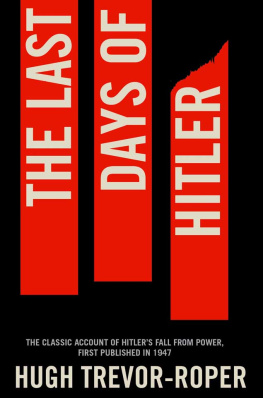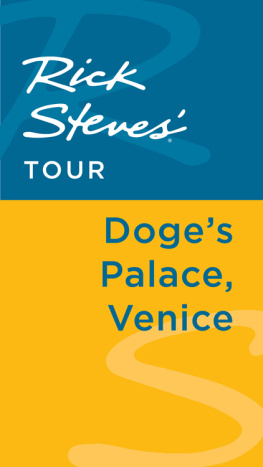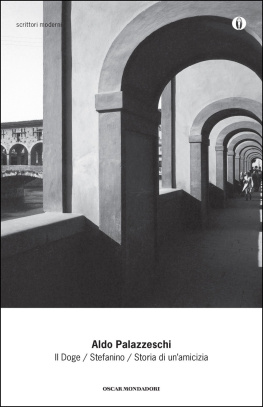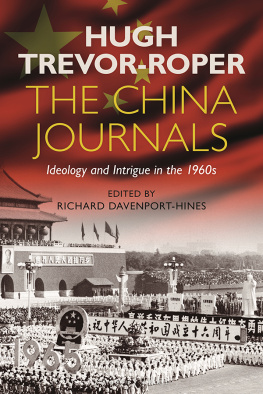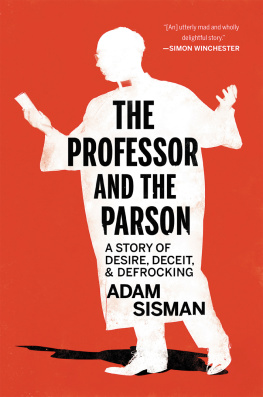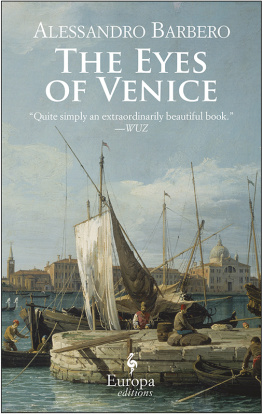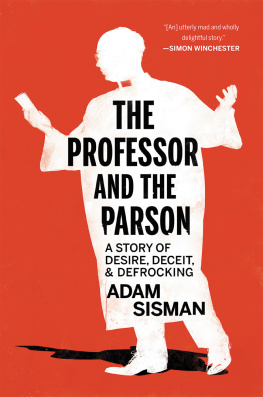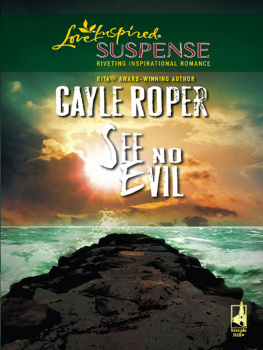Hugh Trevor-Roper - The Doge of Venice
Here you can read online Hugh Trevor-Roper - The Doge of Venice full text of the book (entire story) in english for free. Download pdf and epub, get meaning, cover and reviews about this ebook. year: 2014, publisher: New Word City, Inc., genre: Detective and thriller. Description of the work, (preface) as well as reviews are available. Best literature library LitArk.com created for fans of good reading and offers a wide selection of genres:
Romance novel
Science fiction
Adventure
Detective
Science
History
Home and family
Prose
Art
Politics
Computer
Non-fiction
Religion
Business
Children
Humor
Choose a favorite category and find really read worthwhile books. Enjoy immersion in the world of imagination, feel the emotions of the characters or learn something new for yourself, make an fascinating discovery.

- Book:The Doge of Venice
- Author:
- Publisher:New Word City, Inc.
- Genre:
- Year:2014
- Rating:3 / 5
- Favourites:Add to favourites
- Your mark:
- 60
- 1
- 2
- 3
- 4
- 5
The Doge of Venice: summary, description and annotation
We offer to read an annotation, description, summary or preface (depends on what the author of the book "The Doge of Venice" wrote himself). If you haven't found the necessary information about the book — write in the comments, we will try to find it.
The Doge of Venice — read online for free the complete book (whole text) full work
Below is the text of the book, divided by pages. System saving the place of the last page read, allows you to conveniently read the book "The Doge of Venice" online for free, without having to search again every time where you left off. Put a bookmark, and you can go to the page where you finished reading at any time.
Font size:
Interval:
Bookmark:

In 1423, the Doge of Venice, Tommaso Mocenigo , lay dying. The citys prosperity was at its height; this was indeed the golden age of the republic. But for a generation, grave problems had clouded the citys future: Should it concentrate on its empire abroad or on its base at home? Both were threatened.
The empire abroad was centered in the Aegean Sea, although it extended to Constantinople and the Middle and Far East. Here the threat came from the Ottoman Turks, now settled in Europe, who were pushing into the Balkans. All of Venices efforts were needed to keep them out of the Aegean, and for years that had been the primary goal of Venetian diplomacy.
The threat to home came from closer quarters: New powers were rising in and around Italy. Prior to this time, Venice had been able to build up its empire abroad because its neighbors at home had given little trouble. While bishoprics, communes, and petty princes could not be ignored, their offerings could not compete with the huge profits of the Eastern Mediterranean. The republic had balanced its power with a minimum of direct intervention. But now these petty neighbors were being assimilated by greater powers who were threatening the very life of Venice. The rulers of Hungary and Naples were closing in on its Adriatic lifeline, and a menacing new state was pressing down the valley of the Po . The free republics of Italy were being converted into despotic princely states, and the most powerful of these states was the new duchy of Milan, under the Visconti family. Having crushed the liberties of Milan, the Visconti were expanding their territory around it. They had already absorbed the mercantile republic of Genoa to the south, which, being confined between the Ligurian Alps and the sea, lacked a turf on which to fight. In the east, the Visconti were pushing toward another mercantile republic squeezed between the lagoons and the sea - Venice.
How could the republic ensure its survival? According to some Venetians, the answer was to enlarge its own territory, the Venetian terraferma - a process that had already begun with the annexation of Padua, Vicenza, and Verona. But others distrusted this policy. Land wars, they said, were costly and distracted the city from its real task in the East; they created a new class of landed nobility and made the city dependent on condottieri, and it was out of the landed nobility and condottieri that the powerful new group of princes, which threatened the liberties of all Italian cities, was rising.
As the Doge Mocenigo lay dying, he summoned the ducal councilors to his bedside and delivered a famous speech. The war for the terraferma, he said, had shattered the finances of the republic and could not be continued. The wealth of Venice lay in manufacturing, trading, and shipping: only by keeping to these pursuits and to peace, would the city master the wealth of Christendom. They must be careful to appoint a sound successor to himself. Then he went down the list of the possible candidates: Pietro Bembo , Leonardo Loredan , Giovanni Mocenigo , and Gasparo Contarini - the political members of the great mercantile families who formed the closed aristocracy of Venice. But he warned them explicitly against one man: Francesco Foscari , he said, was proud, ambitious, and unscrupulous. If he were doge, it would mean war, war, and more war.
By that time, the republic had achieved its aristocratic form - a form that would last for centuries. Gone were the days when the people had power of election; since 1297, the Greater Council, the legislature and electorate of the republic, had been confined to the nobility, who, in turn, kept careful control over their membership. Gone, too, were the days when the doge exercised personal power. By now, successive ducal promises - the conditions which the nobility, after observing the faults of each doge, imposed upon his successor - had reduced the doge to a mere figurehead. If offered the dogeship, a Venetian nobleman was unable by law to refuse it. Once elected, his power was narrowly circumscribed. He was unable to travel outside Venice. Neither he nor his sons could marry foreigners without permission. Neither his sons nor his personal officers could hold public positions under him (except as ambassadors or naval commanders, where they could not make trouble at home), and his official councilors, without whom he could do nothing, not even open a formal letter, could not be chosen by him. His income was fixed and his expenses limited, and his authority over the citizens was reduced. He was not even allowed to give himself social airs or answer to honorific titles. To foreigners, as the representative of the wealthiest republic in Italy, he might be Serenissimo Principi (most Supreme Prince); at home, he was only Messer lo Doge. Finally, he could not even quit his job at will: Without the consent of his six councilors, ratified by the approval of the Greater Council, he could not even abdicate. Why then would an ambitious man want to be doge, and what could an ambitious man do if he were doge?
Nevertheless, Mocenigos warning cannot have been entirely groundless. The Venetian constitution may have been altogether aristocratic, and its aristocratic character may have been preserved by a perpetual subdivision of authority and indirect elections and an intricate web of checks and balances. But even a perfect constitution is driven by human passions, and the more complex a constitution is, the more it falls into the hands of skillful politicians. And skilled politicians, even with the old rules, may play a new game. In the fifteenth century, a new game was being played in all the republics of Italy. Their old constitutions were crumbling, and new politicians - sometimes patricians rising out of their midst, sometimes condottieri in their service - were building up despotic rule. This had already happened in Milan with the Visconti; it would happen again with the Sforza . Soon it would happen in Florence, too. Cosimo de Medici might begin as pater patriae, the first citizen of the republic, but he would end by founding a dynasty that would last for centuries. Remembering this fact, no one can assume that even the Venetian constitution was a guarantee against being overthrown by an ambitious doge who might build up a new form of patronage and power. At least that may have been the fear that inspired the Doge Mocenigo to warn his fellow noblemen against electing Francesco Foscari as his successor.
Who was the man who aroused these fears? Venetian aristocrats are always somewhat impersonal figures; the very system, with its intense jealousy of individual power, tended to depersonalize them. It was the essential character of the Venetian republic that all personality was ruthlessly subordinated to the state. Instead of the cutthroat private enterprise of Genoa, or the brilliant individualism of Florence, in Venice, we see only an impersonal state capitalism, an implacable reason of state, a culture entirely hostile to the cult of personality. So the official records of Venice do not animate even a controversial man like Foscari. And yet he certainly was a controversial character, as was demonstrated, first of all, by the battle over his election.
Foscari was determined to be doge. As an outsider, Mocenigo and his friends feared Foscari. He was also, at fifty, the youngest of the candidates; he was considered poor by the wealthy nabob families, although he had enriched himself by marriage; he had held most of the powerful elective offices of the state, and above all - and this was what Venice particularly distrusted - he was the ambitious head of a party. This party was particularly suspicious to the mercantile aristocracy that customarily ruled Venice, for it was a party of the lesser nobles, the radicals, the Westerners who favored war by land. It is said that as procurator of Saint Marks , Foscari had used the large cash balances in his hands to create his following; he had relieved the wants of poor noblemen, given portions to their daughters, and made himself dangerous by their support. No doubt he had won other support by his merits, too. And finally, as was soon to be shown, he was a consummate election manager.
Font size:
Interval:
Bookmark:
Similar books «The Doge of Venice»
Look at similar books to The Doge of Venice. We have selected literature similar in name and meaning in the hope of providing readers with more options to find new, interesting, not yet read works.
Discussion, reviews of the book The Doge of Venice and just readers' own opinions. Leave your comments, write what you think about the work, its meaning or the main characters. Specify what exactly you liked and what you didn't like, and why you think so.

